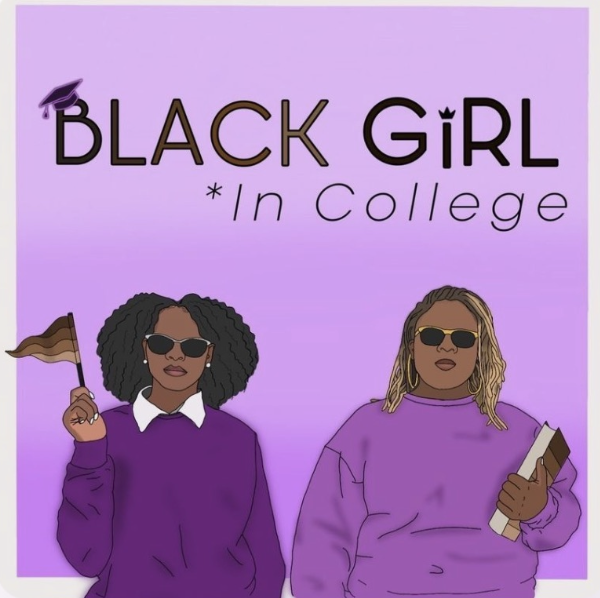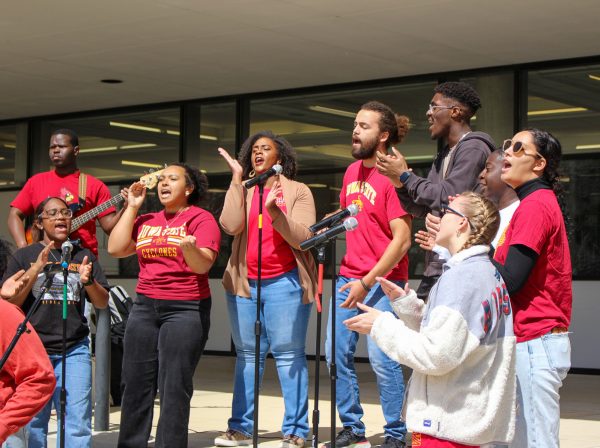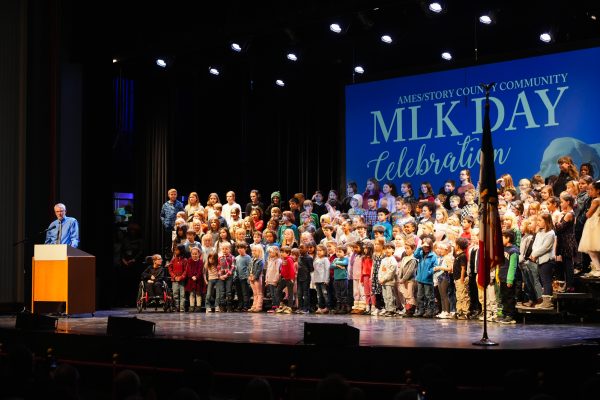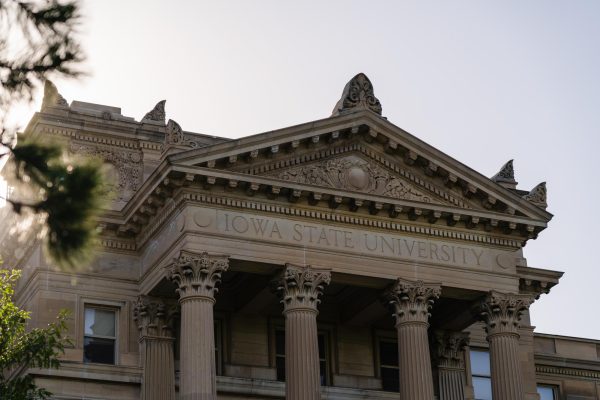UNI and ISU students create safe space for Black women at PWIs

Two college students created a podcast called “Black Girl in College” to discuss topics relevant to Black women’s experience in college.
This September, Monifah Ponton, a student at the University of Northern Iowa, and Kierra Jack, a sophomore studying interior design at Iowa State, started a podcast known as Black Girl in College.
The podcast was started to create a safe space for Black women and people of color at predominantly white institutions, Jack said.
“When we would FaceTime, we realized we were having the same issues at our different schools,” Ponton said. “We figured that more people were going through what we were going through, and we wanted to bring light to what was going on.”
The two have been friends since intermediate school but began planning to start a podcast this past summer.
The pair explained that they came up with the idea for a podcast during the summer of 2022 as a way to express their perspectives as Black women on topics involving college.
Jack and Ponton’s number one goal for their podcast was to create a space where Black women were heard and represented at their educational institutions.
“Usually, the story of a Black woman is always unheard, or it’s overlooked, and we want to make sure we always mention that,” Ponton said. When we step out into the world, we are viewed as Black women before anything else, and we want to make sure that story stays in the front.”
Contrary to the title, Black Girl in College isn’t just for Black women or people of color.
“Even though it’s from a Black woman in college’s perspective, it’s not just for that audience,” Jack said.
Jack hopes Black women find comfort in their podcast by knowing they aren’t alone in their experiences at a predominantly white institution, but she also hopes other demographics listen and see their experiences from different perspectives.
The pair believe that there is a need for this podcast within the Iowa community.
“Iowa State is a predominantly white institution with a little over 1,000 Black students,” Jack said, “This includes men, women and other identities.”
Jack empathizes with the imposter syndrome and isolation students of color may feel at a predominantly white institution. She shares that these issues are very important to talk about.
“I barely see people similar to me, so it’s nice to do this podcast with Kierra,” Ponton said of her experience at the University of Northern Iowa. “I’ve realized that if I’m holding in these conversations, then other Black women are holding in these conversations too.”
With roughly 150 listeners per month, the pair have enjoyed talking about religion, specifically Christianity, and romantic relationships.
“My favorite topic was discussing Christiantiy because many young adults are turning their lives to God,” Ponton said. “They are changing what church and worshiping can look like and make it a more encouraging and welcoming environment.”
Jack shares that talking about romantic relationships with their guest speaker, Taylor Moore, was her favorite topic because it was refreshing to hear a Black man’s perspective.
“The most challenging part of this podcast is getting it more out there,” The pair said. “We discuss topics that Black women talk about a lot. We hope more listeners tune in to learn more.”
In the future, Jack and Ponton are excited to feature Black speakers so listeners can hear different perspectives. They also hope to host sororities, fraternities and alumni.
“This podcast is just sharing experiences from our perspectives, but we would love all identities and individuals to listen,” Jack said.
The Black Girl in College podcast can be found on their website and Instagram.
Your donation will support the student journalists of the Iowa State Daily. Your contribution will allow us to purchase equipment, send our student journalists to conferences and off-set their cost of living so they can continue to do best-in-the-nation work at the Iowa State Daily.












David Jackson | Nov 30, 2022 at 6:23 pm
Do you think people view you “as a black woman first” because you present that as the most important part of your identity? Instead of focusing on others viewing you based upon how you treat others and the skills you bring to the table like nearly all people who don’t focus on demographic identity in their view of the world.